We want our waterways to be the life-giving arteries of our country, not its sewage pipes. Whether boating on them, walking their banks or sipping a pint by their side, enjoying our rivers is a delight and a right, and a precious resource to be protected. Here’s how to explore some of the finest.
Culture and nature on the Teifi
The Teifi runs for 73 miles from the green Cambrian Mountains to Cardigan Bay, largely forming the boundary between Ceredigion and Carmarthenshire, with a few miles belonging to Pembrokeshire. Castles, iron age hillforts, pools and waterfalls dot its beautiful valley, where walks are soundtracked only by birdsong and the rush of white water.
At Teifi Pools, trails loop around small lakes including Llyn Teifi, where the river has its source. It soon meets the graceful ruin of Strata Florida Abbey, built in 1201, and once the most famous church in Wales after the cathedral in St Davids, it is where medieval Welsh princes were laid to rest.
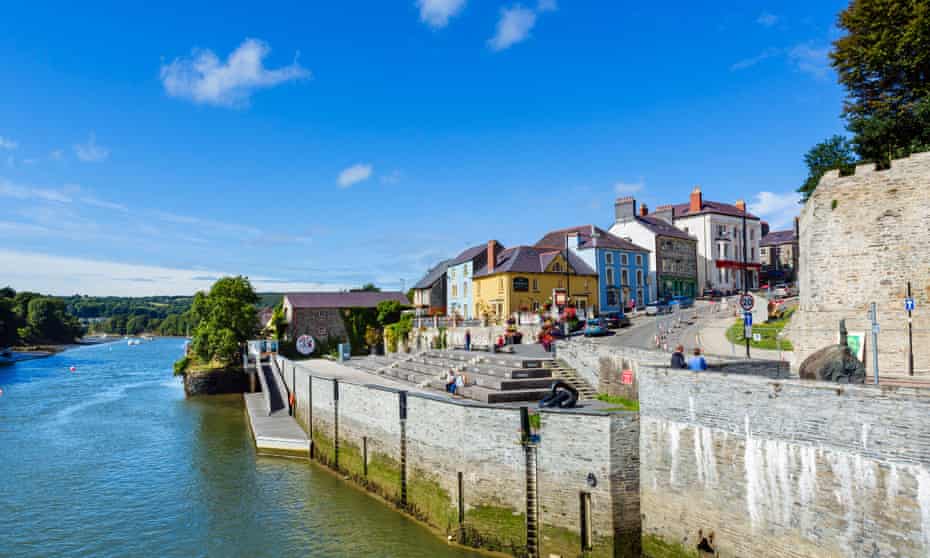
A winding section leads to the Cors Caron national nature reserve, a peat bog reddened by sedges, sphagnum moss and bog asphodel. The headless body of an iron age man was discovered here in 1811. The bog’s reed beds can be explored on boardwalks.
A series of winsome riverside towns clutch at the waters. Grab breakfast or a cake at Riverbank Cafe and Farm Shop in Tregarnon, and admire traditional textiles in Llanybydder at Jen Jones Welsh Quilts and Blankets. Lampeter’s Welsh Quilt Centre has a huge collection but has postponed reopening until 2022.
You might need a nice warm quilt if booking a hammock taster break at Y’Gelli Campsite (£35pp), overlooking the river. More comfy perhaps is the Emlyn Hotel (doubles from £99 B&B) with antique-filled rooms, garden and spa in Newcastle Emlyn.
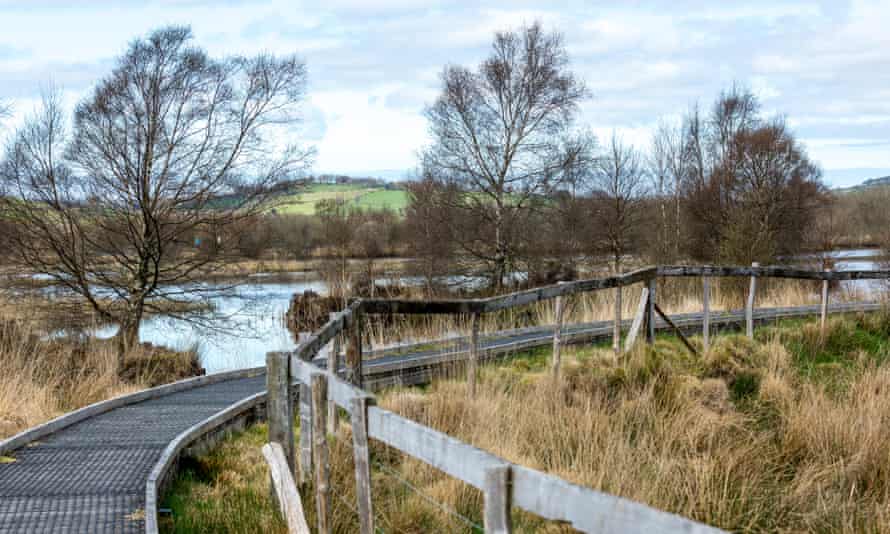
Fishing for salmon, trout and sea trout is a popular Teifi activity (try teifiriverguides.co.uk), and there’s action to be had in this lower section on canoe adventures through the Teifi gorge (see Adventure Beyond for trips). The National Coracle Centre at Cenarth Falls displays the traditional boats in a 17th-century mill, near a famous salmon leap and 200-year-old bridge.
Nearing the sea, colourful Cardigan is the Teifi’s liveliest spot. Here accommodation brand Fforest, whose main glamping and cabin site lies upriver on an 81-hectare (200-acre) farm, has expanded into town, serving wood-fired pizza under riverside tipis at Pizzatipi, Welsh craft beer at its pub Tafarn Smwglin, and creating new retro-rustic riverside apartments in an old warehouse at Granary Lofts (sleep two, from £190 for two nights).
Finally, almost at the river’s mouth, another ancient abbey, St Dogmaels, and several riverside pubs are a fab final fling before the sea.
Picnics, walks and dips along the Wharfe
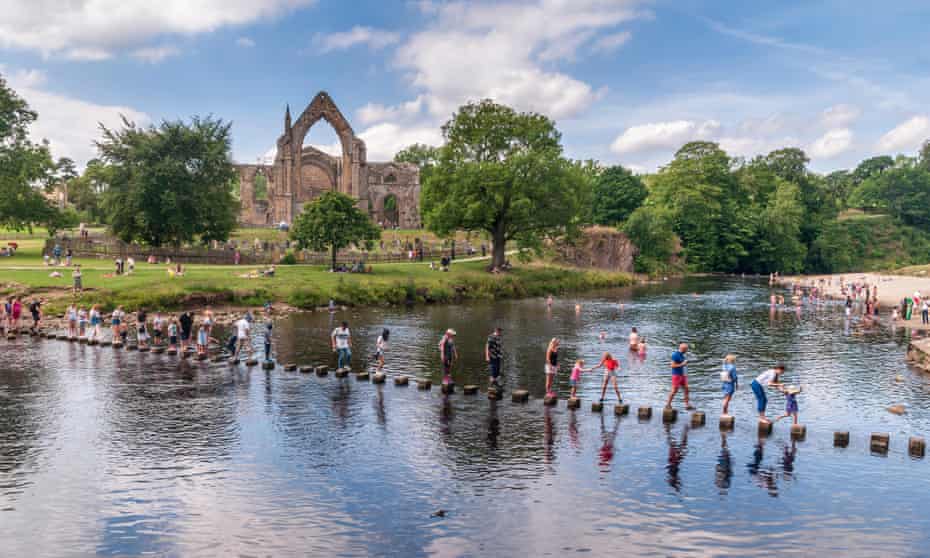
For scenic days of rambling and swimming, the 65-mile River Wharfe is a glorious tumbling beauty that takes in the beautiful Yorkshire Dales, flowing along a glacial valley into a landscape of limestone scars and crags, through the up-and-coming towns of Ilkey and Otley.
Where the river gathers in Langstrothdale in Upper Wharfedale, in the Yorkshire Dales national park, collecting becks like pickup sticks, there’s lovely hiking near the picturesque villages of Beckermonds, Yockenthwaite and Hubberholme, up through moorland to the top of Birks Fell or Buckden Pike.
In Hubberholme, the George Inn (doubles from £95 B&B) will do a pint and a sarnie, or you can continue downriver to Kettlewell’s charming The Bluebell (doubles from £100 B&B). Further down, it’s worth making a detour to watch the rockclimbers on the sheer rock-face of Kilnsey Crag, and to hike over into stunning Littondale. Here in Arncliffe the characterful Falcon Inn has brilliantly chintzy dining rooms and snugs, whose walls are covered in knick-knacky treasure, and beer is still poured from a jug.
There are places to paddle along the route but be careful about swimming, especially after rain, when the river can swell quickly. It’s popular to ride the rapids with an inflatable at Ghaistrill’s Strid, and families often swim at Grassington, a busy village with grassy banks, weirs and a slide-like chute, and at Burnsall and Appletreewick, opposite which the old-fashioned Craven Arms is a delight, with great grub and shepherd’s huts from £140 a night. Or camp by the river at Masons Campsite (pitches from £30 a night, glamping from £155).
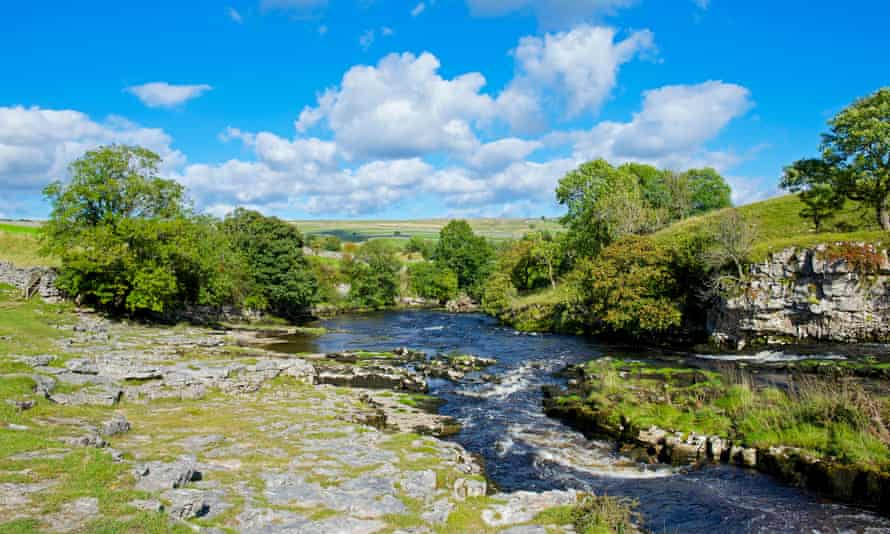
Also great fun is a leap from limestone cliffs into a deep pool at Loup Scar, upriver from Bolton Abbey, where you could spend a whole day swimming in the pool upstream, picnicking in the priory grounds, crossing the famous stepping stones and perhaps even pushing the boat out with a fancy dinner at the Devonshire Arms Hotel and Spa (doubles from £189 B&B).
Down in Lower Wharfedale, near the increasingly chichi Ilkley, a wide section between Ilkley Main Bridge and Beanlands Island recently became England’s first designated bathing site on a river, under an EU scheme. It will be regularly monitored, and protected by the Environment Agency. The town also has a stunning lido if you’re missing chlorine and showers by then.
Adventure and whisky on the Spey
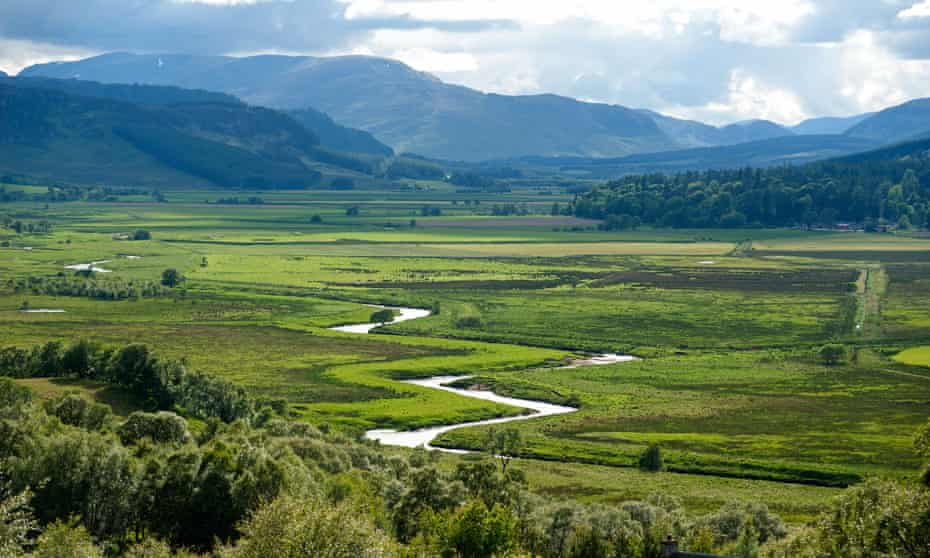
Of all Scotland’s grand rivers – from the longest, the Tay, flowing through the Highlands, to the industrial Clyde, birthing canal for the world’s shipbuilding industry – the Spey is one of the most natural and unspoiled. Luxuriously wild, it charges down through the Cairngorms in constant metamorphosis – weaving burns into rapids, stilling in deep pools and widening over alluvial plains to Spey Bay, where it meets the Moray Firth.
To many it stands for two things: fishing and whisky. It’s the world’s most famous salmon fishing river (try Salmon Fishing Scotland’s trips, from £256pp a day), and Speyside, home to more whisky distilleries than any other Scottish region, can be explored on the Malt Whisky Trail.
But liquid refreshment comes in other forms too. In the Cairngorms national park, River Spey Kayak runs paddleboarding tours (from £45pp), while Much Better Adventures has an epic five-day summit-to-sea canoe and wild camping trip (£650pp, Aug-Oct), kicking off with a hike up Ben Macdui and a dip in Loch Etchachan, taking in Abernethy Forest national nature reserve and canoeing rapids called the Washing Machine, looking out for red squirrels, otters and ospreys along the way. Spirit of the Spey has a luxury canoeing week including hotels, castle visits and distillery tours (£2,000pp).
As for vittles and kip, in Aviemore, the Old Bridge Inn (doubles from £60 room-only) has good scran in a riverside beer garden; downriver Nethy House (doubles from £62 room-only) is a stylish cafe with rooms that operates mountain bike trails on the neighbouring Glenlivet Estate; and Grantown on Spey’s Garth Hotel (doubles from £80 room-only) serves sublime local langoustines with chips.
Foodie tour along the Thames
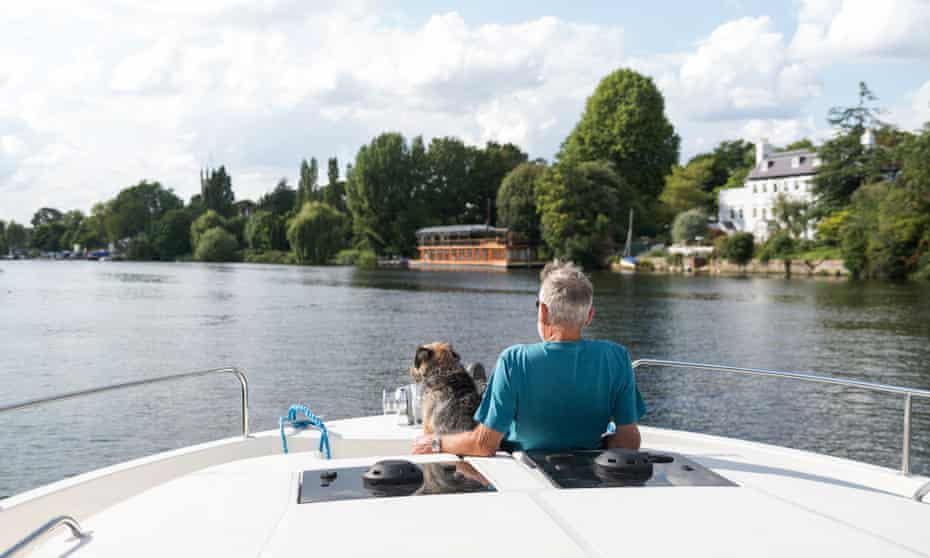
From Pimm’s and champers at Henley Regatta, via Wind in the Willows picnics of cold tongue and lemonade, to Heston Blumenthal’s world-changing Fat Duck in Bray, the mighty Thames has a longstanding culinary history.
Joyfully consuming food and drink is a time-honoured pastime on the banks of the Thames, especially farther west where the river ambles through peaceful countryside and well-to-do villages that are home to some of the finest restaurants and pubs in the land.
For a treat, hire a self-drive live-aboard motorboat from Le Boat (three nights from £619, sleeps three, various pickup points), or a Zen electric boat (from £180 for a half-day for eight people, boatrentalthames.com) from Bisham Abbey. To justify the calorie consumption, explore with a kayak (from £45pp a day for self-guided tours, ultimate-canoeandkayak.co.uk) or walk the Thames Path.
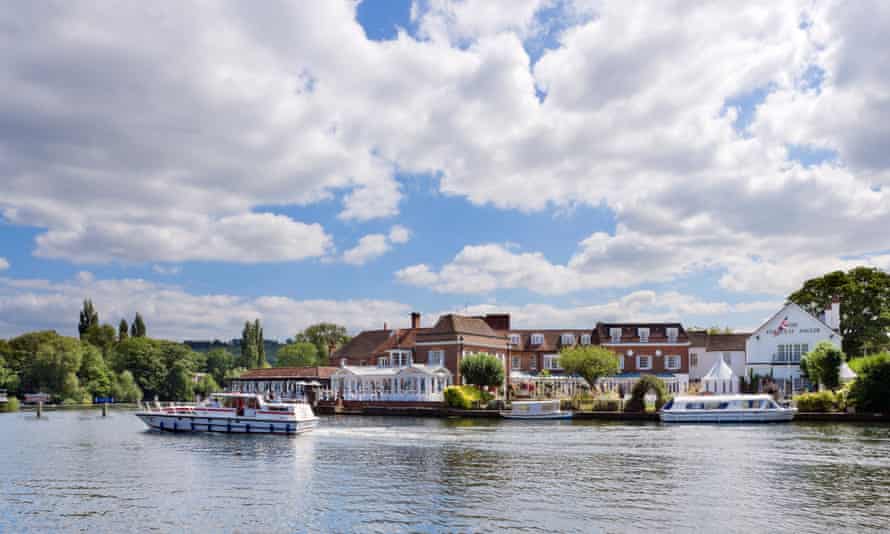
There are limitless options for stops, but consider pizza and cocktails at Coppa Club in Sonning, east of Reading, whose gardens are full of sofas and igloo domes. It’s in the grounds of the Great House, which has cool doubles from £75 room-only. There are numerous waterside pubs in Henley-on-Thames, such as Bistro at the Boathouse, good for a bargain breakfast or bottomless brunch, and Marlow’s Compleat Angler is a smart inn adored by luminaries including J M Barrie, Nancy Mitford and the Queen. At its restaurant, Sindhu, chef Atul Kocher reinvents Indian cuisine with dishes such as ghee-seared roe deer korma (tasting menu £49pp) – or just take tea on the lawn and watch Olympic rowers hammer past.
For a quirky pub stop, pull up at the Bounty in Bourne End, which serves cask ales from a boat-shaped bar that’s accessible only by boat or on foot. Cookham’s bright white Ferry might tempt with its rotisserie pork belly with scallops (£19) or trio of roasts (£18).
Things get posher near Maidenhead, where waterside brasserie Roux at Skindles offers French dishes such as a dozen Burgundy snails (£14) and chantilly choux buns (£10). It’s a cheaper Roux clan indulgence than the famous Waterside at Bray. Also in Bray, Heston Blumenthal’s Hind’s Head pub, while not cheap (mains start at £26), is a more affordable alternative to his Michelin star-spangled Fat Duck (from £250pp). He used to own the nearby Crown too, where you can get a glass of vino for a fiver in the garden marquee. A last port of call might be Oakley Court near Windsor, a Victorian gothic hotel newly souped up with maximalist boho-chic verve: its gorgeous riverside gardens are great for pizza on the lawn (from £11) or a savoury afternoon tea.
Wildlife and city thrills on the Tyne
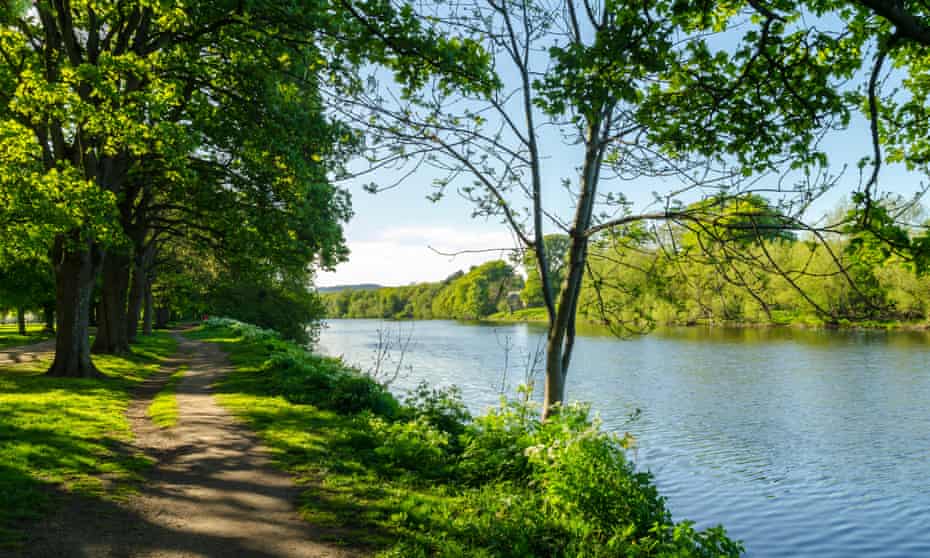
Best known as the industrial city river of Newcastle and Gateshead, as a centre of shipbuilding at South Shields and for the transportation of coal, the Tyne is also rich in wildlife and natural beauty. It is England’s best salmon river, home to rare water voles – after a reintroduction programme in Kielder Forest – and many bird species.
The North Tyne begins near Kielder Water, with its woodland paths, red squirrels and wonderful collection of contemporary sculptures. Its Gold Tier dark sky park status makes it one of the best places in Europe for stargazing, so it’s worth staying overnight – try Landal Kielder Waterside cabins (three nights from £415, sleeping four).
Follow the River Tyne Trail to Hexham, where the North Tyne meets the South and there’s a salmon leap. Nearby in Wall, the Hadrian Hotel has doubles from £120 B&B, and its restaurant, Hjem, is a Michelin-starred, Scandinavian-style wonder (tasting menu £120pp). It’s a good base for Hadrian’s Wall, which ran for 73 miles from the mouth of the Tyne to Solway Firth, plus the Roman garrison town of Corbridge and Segedunum Roman Fort, near Wallsend.
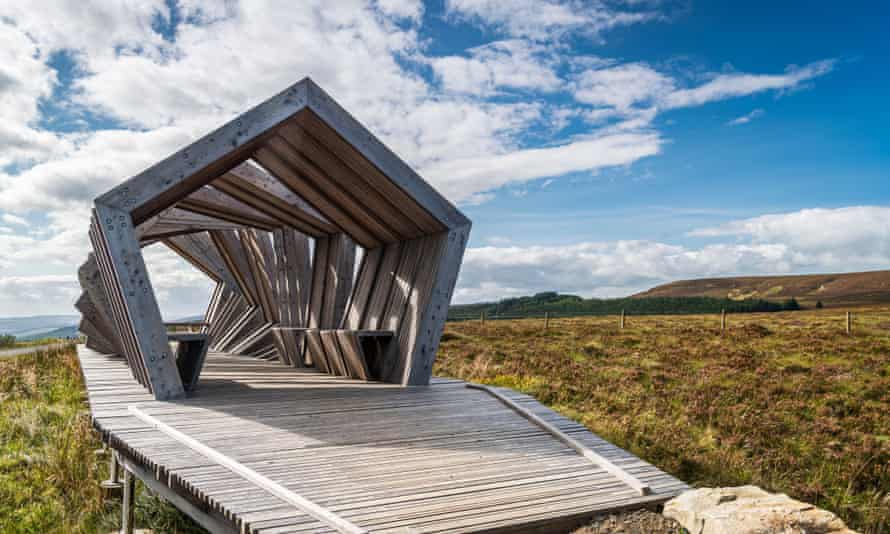
Immersion in nature continues even as the river rolls into Newcastle and Gateshead’s regenerated Quayside, home to redshanks, curlews, cormorants and the farthest inland breeding colony of kittiwakes in the world. Discover more on a free walk with charity Kittiwakes upon the Tyne. Some of these birds nest on the ledges of Gateshead’s Baltic Centre for Contemporary Art, whose exhibitions and self-guided audio tours are also worth swooping on.
At night the lively Quayside twinkles like a Geordie Vegas, the Millennium Bridge a curve of colour-changing neon. Rather than getting drunk at the water’s edge, don a lifejacket for a night-time Glow Tour in an illuminated kayak with CBK Adventure (£60pp), including drinks in the Head of Steam bar. There’s another waterside bar at the smart new Innside hotel (doubles from £74 room-only).
To explore the whole river in an active dash, Intrepid has a source-to-sea trip by bike, on foot and in canoe or kayak, staying in hotels (from £851pp for four days).




